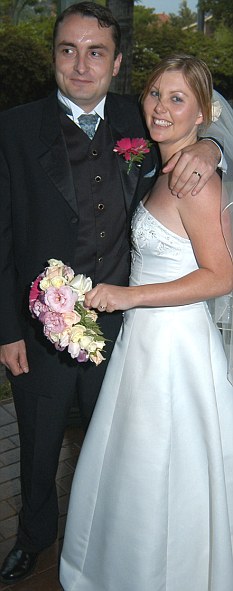Healthcare Lessons from Both Sides of the World
While we address healthcare coverage here in the US, there are a few lessons we can learn from two families – one along the eastern side of the U.S. and the other in the southern hemisphere in Sydney Australia.
 While healthcare laws appear to benefit married couples – qualifying for employee healthcare benefits or state pension coverage in the UK – ironically, couples have had to resort to extremes after dementia or another disease or illness strikes. In some cases, couples have filed for divorce or legal separation in order to qualify for assistance.
While healthcare laws appear to benefit married couples – qualifying for employee healthcare benefits or state pension coverage in the UK – ironically, couples have had to resort to extremes after dementia or another disease or illness strikes. In some cases, couples have filed for divorce or legal separation in order to qualify for assistance.
Is this what we want? To tear families apart?
Such was the case for this young couple in Australia who were expecting their first child.
Rebecca Doig was diagnosed with a rare form of Alzheimer’s disease. She had a brain scan following periods of memory loss. Only 31, she learned she was pregnant.
In order to qualify a pension, the couple legally separated. Rebecca stayed in her parents’ home two hours away, while her husband remained employed in Sydney.
She and her husband felt great joy as any expectant parents would. However, their hearts were burdened with worry. What effect would her fast-progressing Alzheimer’s have on their fledgling family?
In an interview with The Telegraph, her husband Scott said, “She went from being an independent, outgoing and bright young woman to someone who doesn’t recognise her own newborn daughter.” After Emily Rebecca was born, Alzheimer’s had progressed so quickly, Rebecca could no longer remember the birth of her child. She didn’t even remember she had a daughter. Fortunately, baby Emily did not inherit the PSEN1 gene, considered the cause of Rebecca’s younger-onset Alzheimer’s.
Video Credit: Today Tonight (appearing on “helpdoig” YouTube profile).
Is This What We Should Expect from Healthcare?
When we examine the proposed healthcare initiatives, what will be the ripple effects? Will we unintentionally tear families apart? Will we discriminate against families who live with dementia? Will we leave millions without healthcare coverage?
After the Congressional Budget Office estimated that 22 million Americans would lose healthcare coverage under the proposed Better Care Reconciliation Act of 2017, AARP sent a letter to the 100 members of the U.S. Senate [7/13/2017: Letter removed from AARP site] on behalf of its 38 million members. They urged Senate members to oppose the act and to create a new plan that “ensures robust insurance market protections, lowers costs, improves quality, and provides affordable coverage to all Americans.”
Planning for Long Term Care Didn’t Help
Just last week, the New York Times published “One Woman’s Slide From Middle Class to Medicaid.” [TCV Update 2/14/2022 NYT article subscription required] What a startling wake-up call when a widow and her family learn that their advance planning was not enough. After a dozen years into retirement, Rita Sherman, had about $600,000 in assets and a long-term care plan. Thanks to help from her medical social worker daughter and financial planner son-in-law combined with her own foresight, she ultimately qualified for Medicaid following a diagnosis of dementia and five-and-a-half years in a nursing home.
How is this even possible?
These are two lessons from around the world that policy makers can learn in order to design a responsible healthcare plan that ensures coverage for all Americans.
Our Responsibility?
While I believe we have a responsibility to take care of ourselves so that we don’t burden society, what about those who are diagnosed with diseases like dementia through no fault of their own? What would become of Rebecca if she lived in the United States?
Sadly, Rebecca Doig died at age 32 at Normanhurst’s Bowden Brae care facility with her family by her side.









Thank you for sharing this story. When I worked at the nursing home, I remember a resident on our memory care unit being served with divorce papers. His wife felt she needed to do this to protect herself from financial ruin, but of course he didn’t understand any of this. It was heart-wrenching.
My pleasure Diane. As you wrote, it is a desperate attempt by families to cope within the rules and laws. Sadly, we end up tearing families apart.